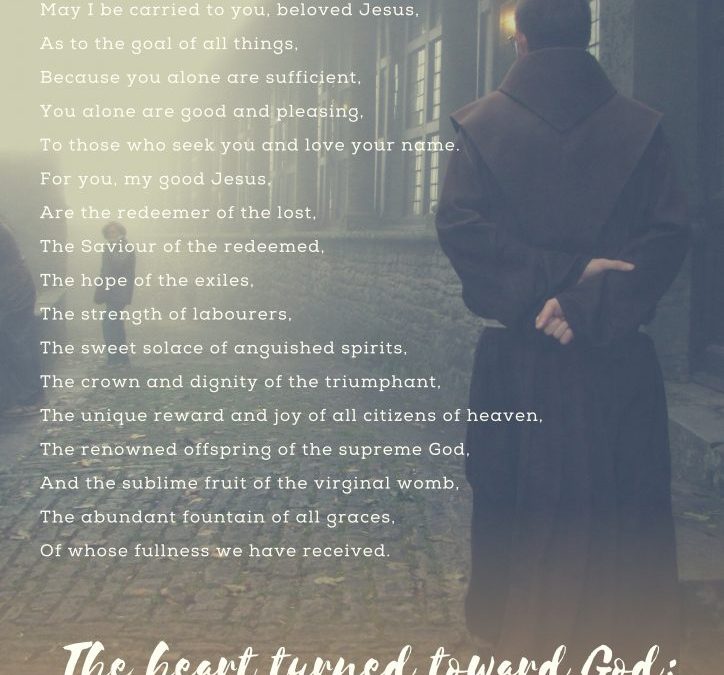
The Heart Turned Toward God : St Bonaventure
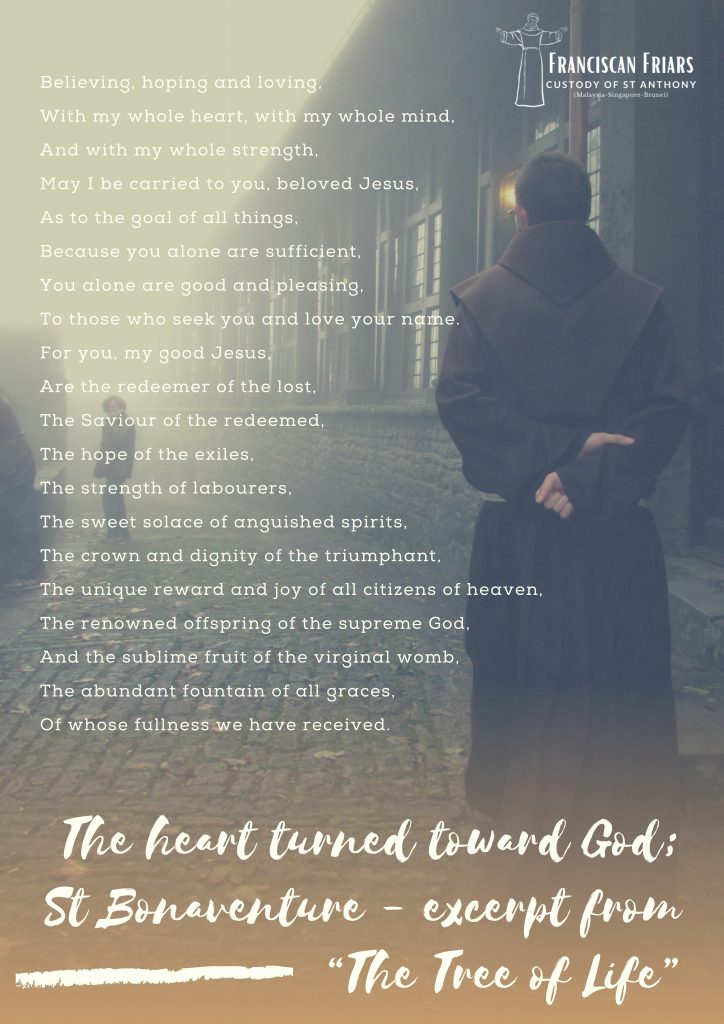


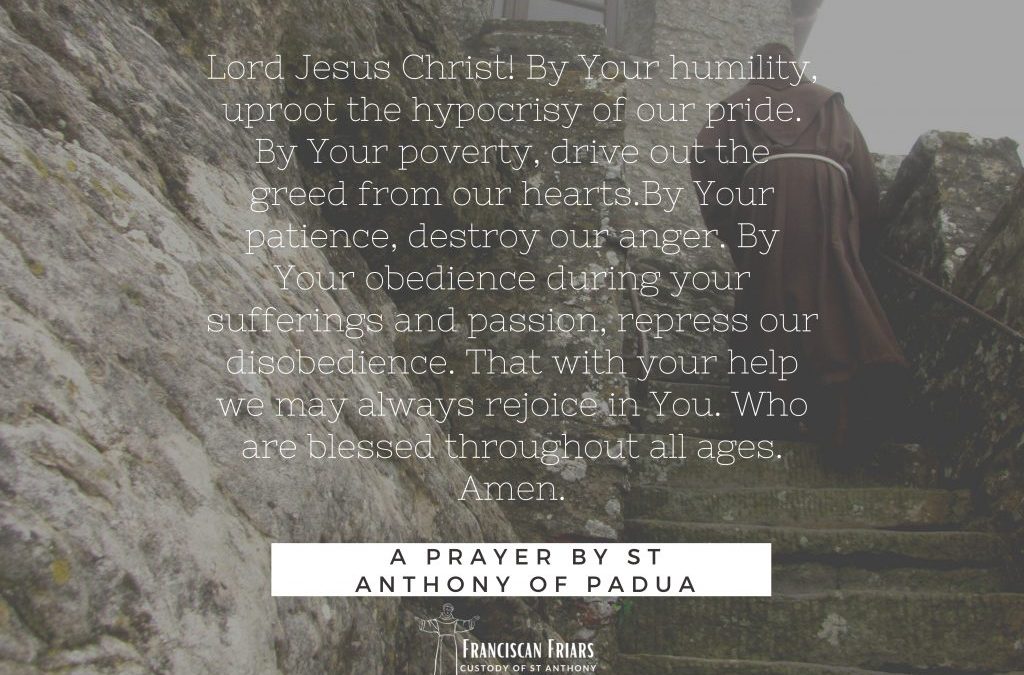
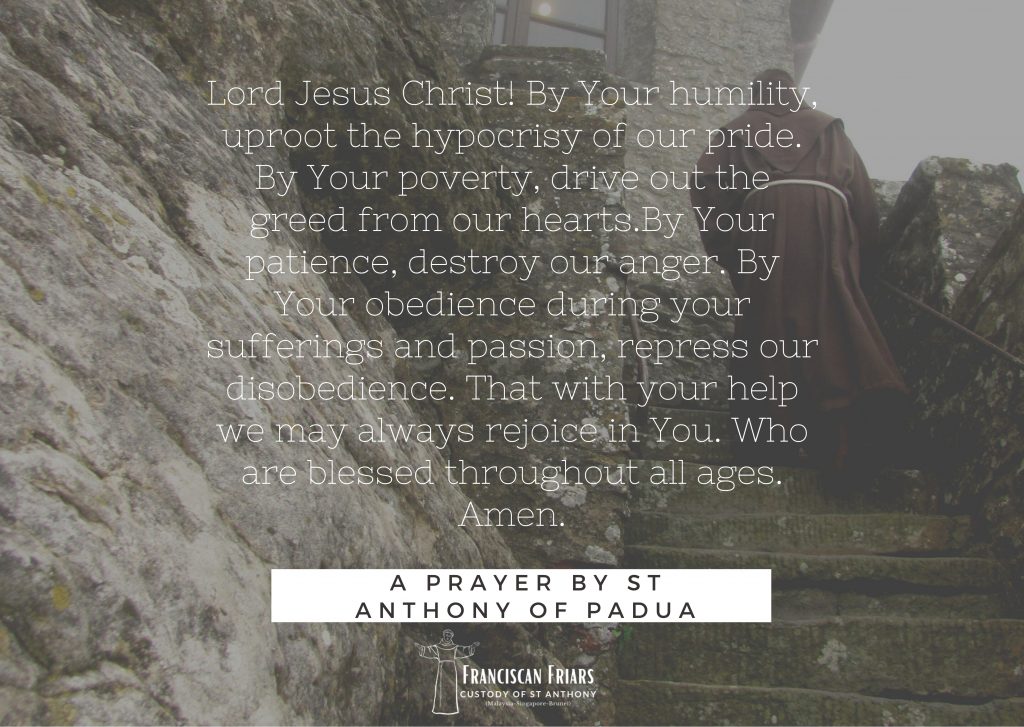
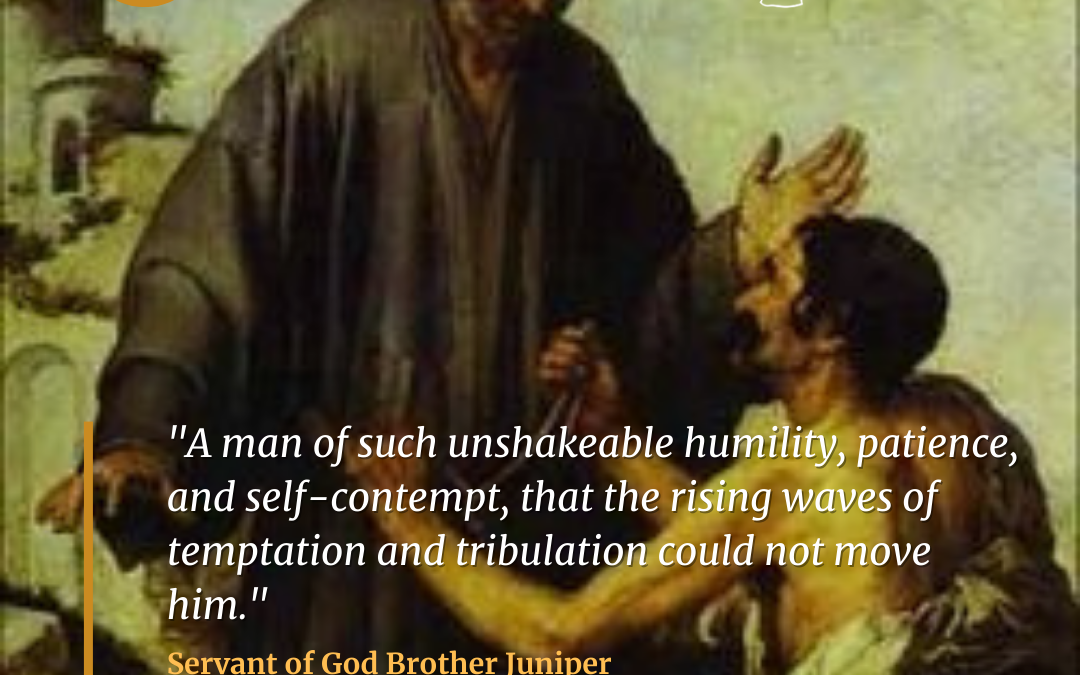
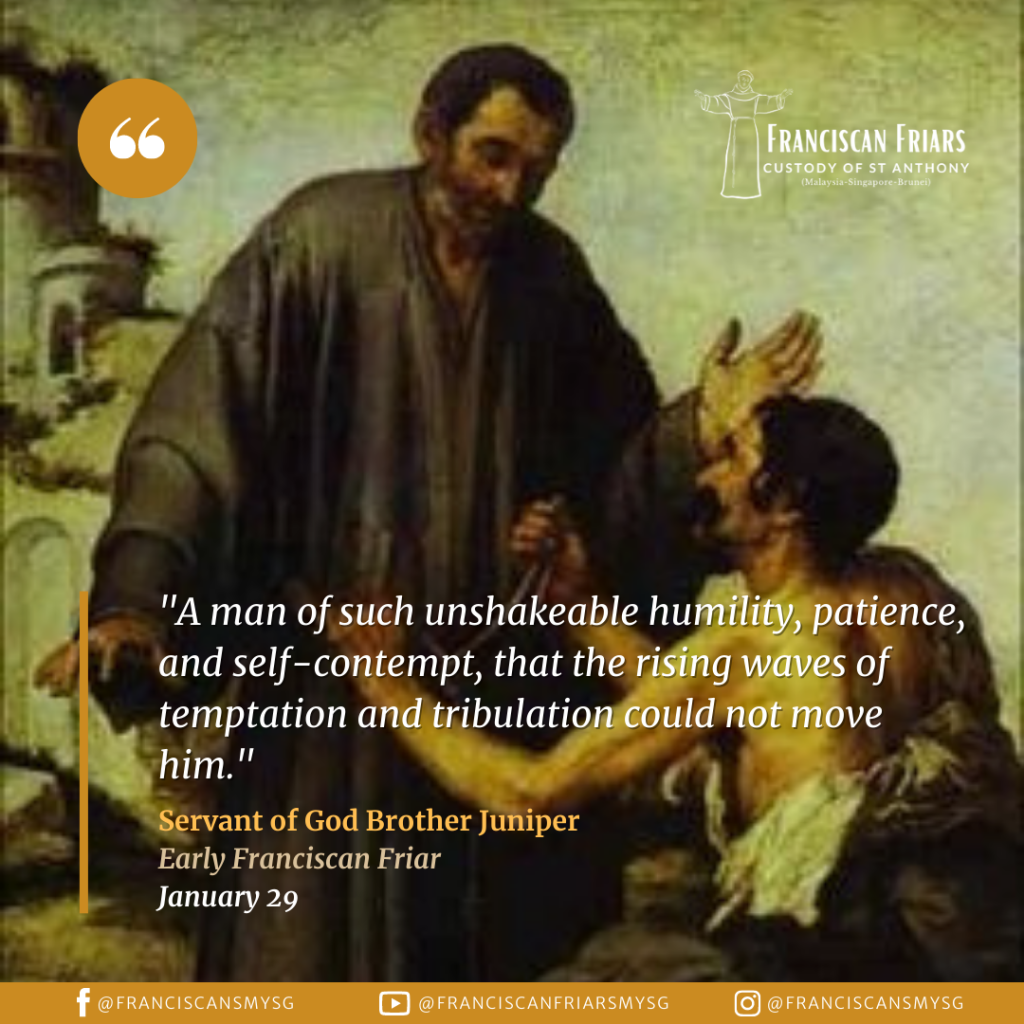
Brother Juniper was one of the original companions of St. Francis and
” a man of such unshakeable humility, patience, and self-contempt, that the rising waves of temptation and tribulation could not move him.”
Brother Juniper evidently attained such a degree of holiness that he was quite indifferent to the opinion or regard of others. This was fortunate, since “he was considered stupid and foolish by those who did not know how perfect he was.”
Apart from the stories in his brief “Life,” little is known of his biography. In these stories, he appears to function as a kind of living parable. Francis and his followers were regarded by the world as “fools for Christ.” Just so, the exasperating foolishness of Juniper served among the friars as a standard by which to measure their own compromise with the wisdom of the world.
Over and over again, Juniper tested the patience of his brothers. And not infrequently, after one of his escapades, “the friars were very much shocked and scandalized, and they rebuked him forcefully, calling him a lunatic and a fool and a disgrace to the order of St. Francis, and declaring that he should be put in chains as a madman,” At the sight of the poor, for instance, he was filled with such compassion that he would hand them his garment or rip off a sleeve or a cowl to give them. Not content with giving away his own habit, he would freely dispense his books, altar vestments, or anything else he could lay his hands on. As a result, “when poor people came to Brother Juniper to beg, the friars used to take and hide the things they wanted to keep.”
One time, he set out to surprise the brothers by preparing a feast. After filling pots with water, he tossed in everything – “chickens with feathers and eggs in shells” – so that everything could cook together. When he set down before the friars “that hodgepodge of his, which not a single hog in the city of Rome would have eaten.” they scolded him severely. Juniper displayed such humble abasement that the guardian was moved. Such an edifying example of simplicity, he said, was worth the waste of food.
So on this, and many other occasions, Juniper’s foolishness ultimately bore such a lesson in charity, faith or humility, that Francis himself was moved to observe on one occasion, “My Brothers, if only I had a great forest of such junipers.”
He died in Rome in 1258.
Once when Brother Juniper was praying – and perhaps he was thinking of something extraordinary – a hand appeared to him in the air, and he heard a voice saying to him: “Oh Brother Juniper, without this hand you can do nothing.” He quickly arose and ran through the friary, gazing up at heaven, dancing and shouting in a loud voice: “Indeed that is true, Lord! Indeed that is true!” And he kept on shouting that for a long time.
– From the Life of Brother Juniper
Source : The Franciscan Saints (Franciscan Media)

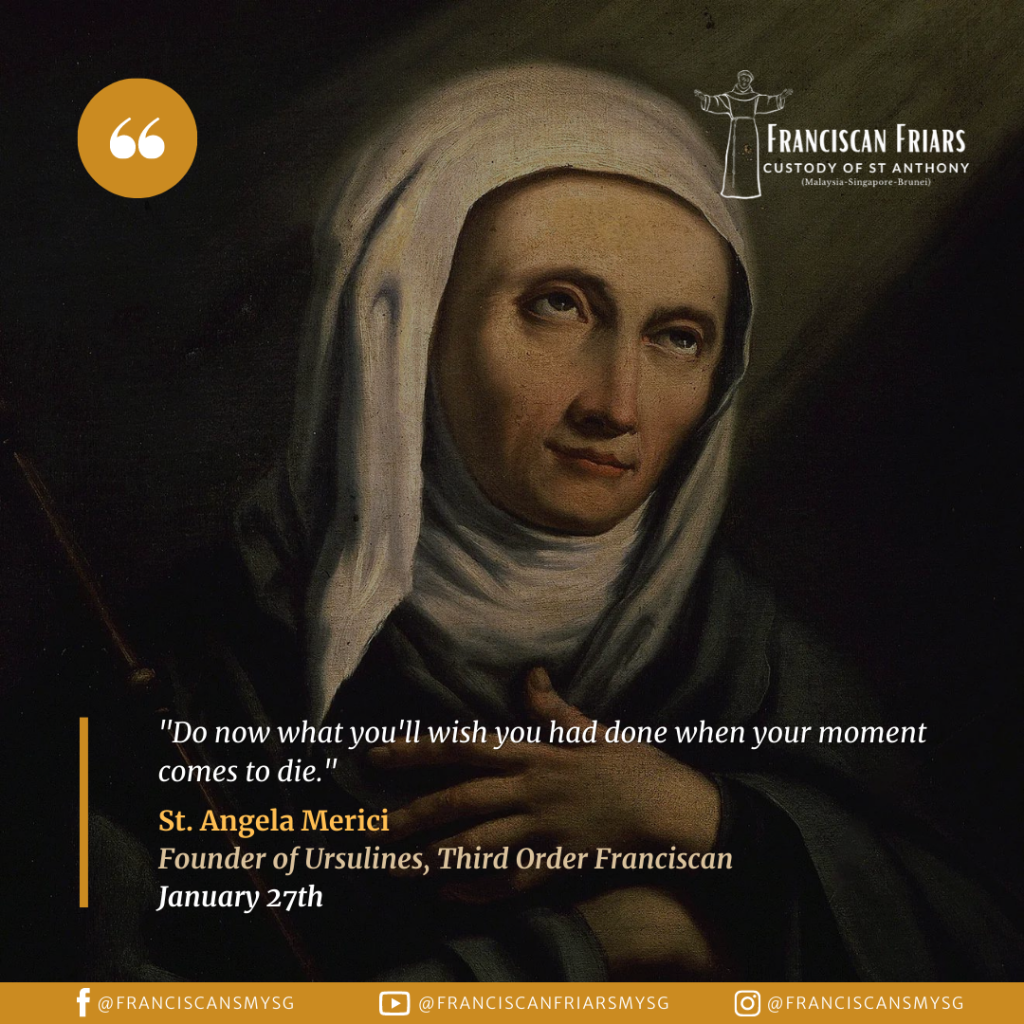
Born in Lombardy and orphaned at an early age, Angela Merici became a Franciscan tertiary and embraced a life of prayerful simplicity. After spending many years in almost continuous pilgrimage, visiting shrines of Italy, she had a vision one day in which she beheld a company of angels and maidens descending from a ladder in the heavens. A voice revealed that she would found a community whose members would be as numerous as the maidens thus revealed to her.
For some years Angela offered religious instruction to the children of her poor neighbors. Over the years, when not travelling, she had made this her regular occupation. Other women were gradually inspired to join her. Finally, after she had settled in Brescia, Angela had a group of twenty-eight women prepared to consecrate themselves with her to God’s service. They chose as their patron St. Ursula, a legendary fourth-century martyr widely venerated as a protector of women.
Although she devised a simple rule for her Ursuline community, Angela did not initially conceive of them as a religious order. While dedicating themselves to the education of poor girls, the members wore no habits and took no vows; they continued to live with their families rather than behind an enclosure. The idea of such an association of religious women was unheard of at the time. But the work of Angela and her companions was widely admired. Angela observed, “Each member of the Company should strive to despoil herself of everything and set all her good, her love, her delight, not in robes, nor in food, nor in relatives, but in God alone and in his benign and ineffable Providence.”
By the time of her death on January 27, 1541, Angela was revered as a living saint in Brescia. Crowds of people would follow her to church, attracted in part by her reputation for levitating several inches off the ground while gazing on the Eucharist. Four years after Angela’s death, Rome approved a constitution for her congregation, which would in time come to number many tens of thousands. She was canonized in 1807.
Source : The Franciscan Saints (Franciscan Media)
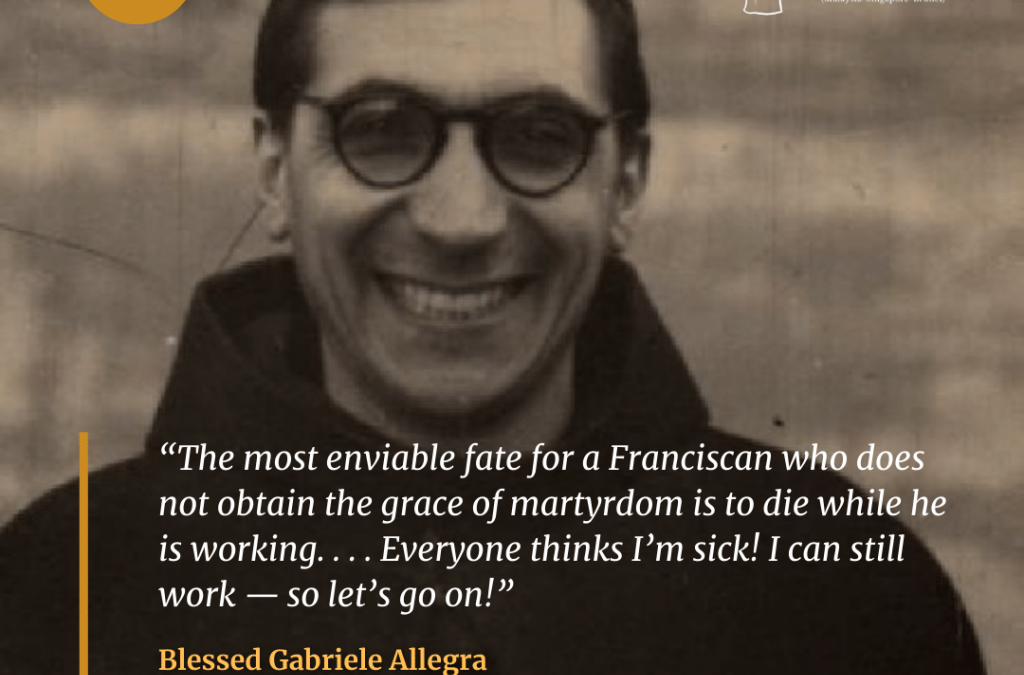
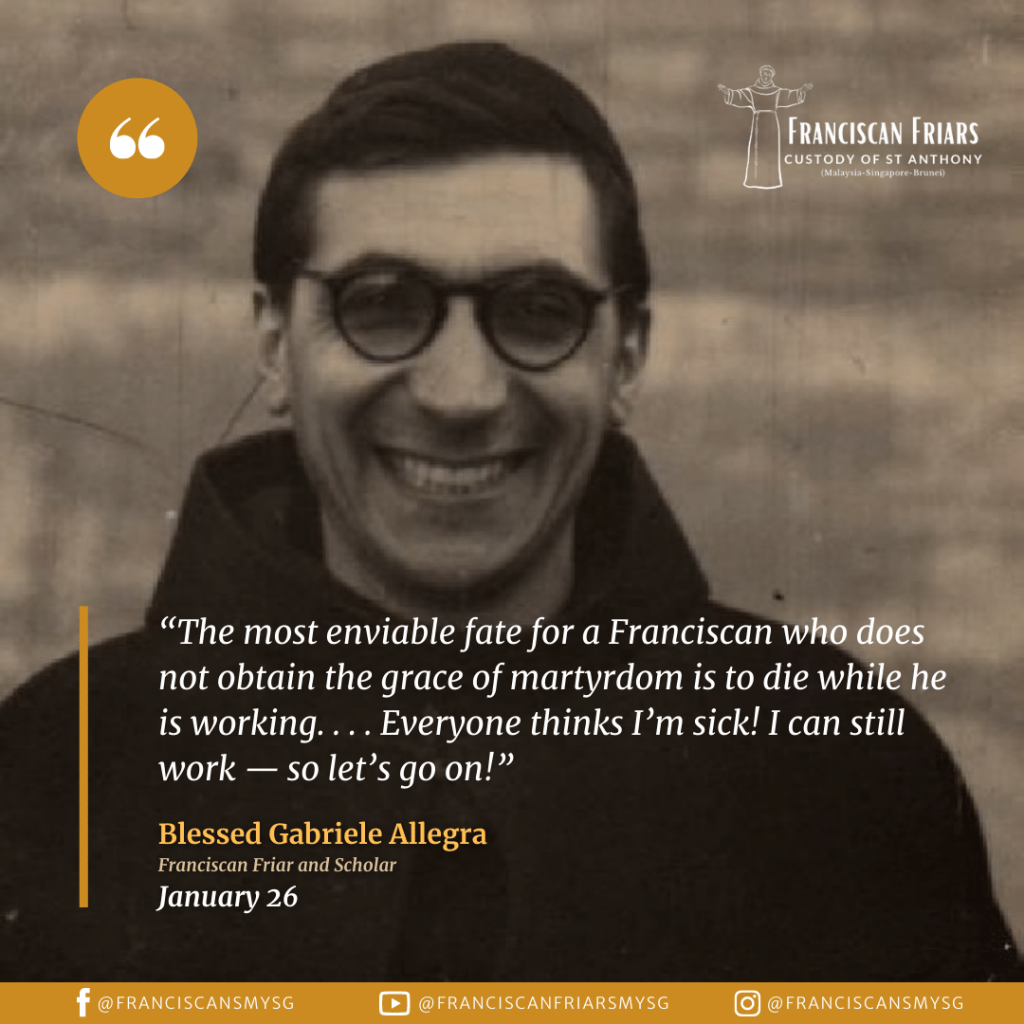
Known as “the St. Jerome of China”, Fr. Gabriele was born Dec. 26, 1907 in a village in the province of Catania, Sicily, and entered the Order as a youth of 16. While he was studying theology at St. Anthony’s College in Rome, an academic conference was held there on the work of Giovanni of Montecorvino, a Franciscan who journeyed to China in the late 13th century.
Inspired by Giovanni’s attempts to communicate Christianity to the Chinese people, Gabriel sailed to Hunan Province shortly after his ordination in 1930, and as soon as he gained knowledge of the language, began translating the Bible into Chinese. This was a task that would consume the next 40 years of his life: facing many obstacles, he persevered, establishing the Studium Biblicum Franciscanum in Beijing in 1945. Forced to move to Hong Kong in 1948, he and his friar collaborators completed the translation of the Bible into Chinese with full commentary in 1968. He died in Hong Kong on Jan. 26, 1976.
Although known primarily as a biblical scholar, Fr. Gabriele was well-read in other areas of theology, becoming an expert on the thought of John Duns Scotus and a friend of the Jesuit Fr. Teilhard de Chardin. He also carved out time to help the poor, victims of war, and the sick, especially a leper colony in Macau, where he often spent his holidays. Perhaps Blessed Gabriele might be venerated as the patron of workaholics. He was fond of saying: “The most enviable fate for a Franciscan who does not obtain the grace of martyrdom is to die while he is working. . . . Everyone thinks I’m sick! I can still work — so let’s go on!”
Source : The Holy Name Province